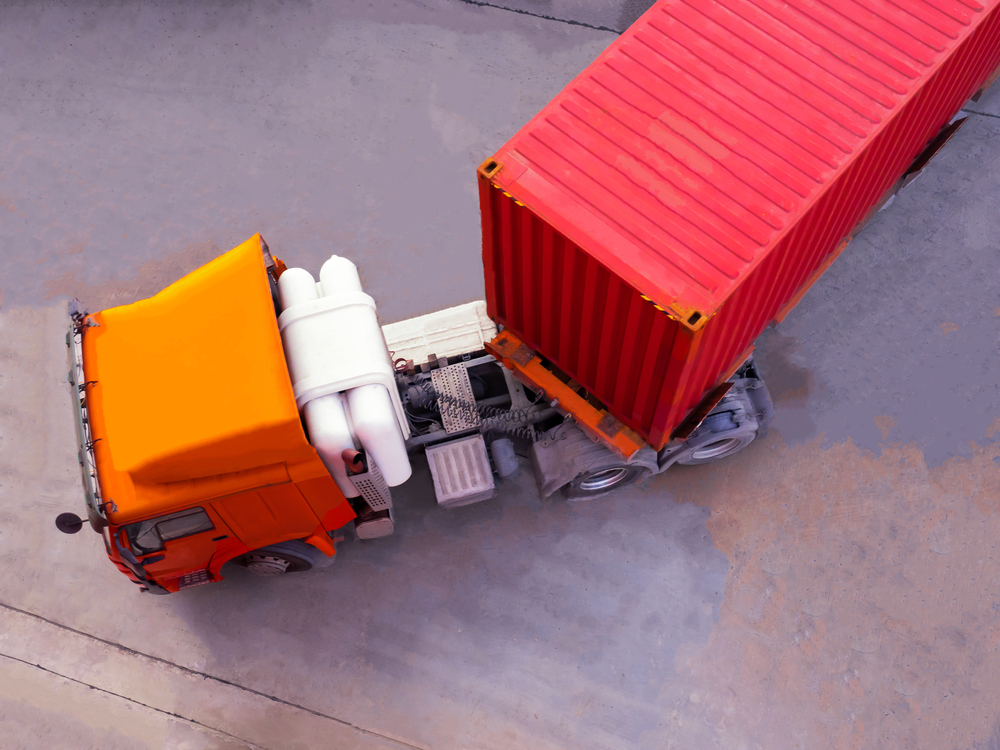Truck accidents come in many different types based on the point of impact between the truck and other objects, the number of vehicles involved, and on the cause of the accident. The type of truck crash you were in can affect the extent of injuries and property damage you have suffered, as well as which party or parties you can hold responsible for your expenses and losses. An experienced truck accident attorney can investigate the crash to determine the type of truck accident and what effects it might have on your legal options for pursuing financial recovery.
Common Causes of Truck Accidents
Some of the most frequent causes of truck accidents include:- Speeding
- Tailgating
- Reckless driving, including excessive speeding or darting between lanes of heavy traffic
- Aggressive driving/road rage
- Failing to signal or check mirrors before changing lanes or turning
- Swinging wide on right turns
- Running red lights or stop signs
- Disregarding traffic controls
- Drowsy or fatigued driving, especially after driving in violation of hours-of-service restrictions
- Drunk or drugged driving
- Distracted driving, especially while using a cell phone
- Unsafe cargo loads, including overloading a truck or trailer past its hauling capacity, failing to balance the cargo load, or failing to secure cargo from shifting during travel
- Driver inexperience
- Unfamiliarity with roads
- Failure to conduct vehicle or cargo inspections
- Inadequate or negligent truck or trailer maintenance
- Vehicle defects or defective auto parts
- Negligent or unsafe road design or negligent road maintenance
Common Injuries Caused by Truck Accidents
Truck accidents may lead to a wide range of physical injuries, such as:- Lacerations
- Abrasions
- Degloving injuries (skin torn away from underlying tissues)
- Ligament sprains and tears
- Muscle/tendon strains and tears
- Burns and smoke inhalation damage from post-accident vehicle fires
- Perforation injuries
- Whiplash
- Nerve damage
- Internal organ injuries and internal bleeding
- Herniated disc injuries
- Spinal cord injuries
- Traumatic brain injuries
- Head and facial injuries, including eye damage
- Crush injuries
- Fatal truck accidents
- Traumatic amputation or limb loss
- Toxic exposure
Common Types of Truck Accidents By Impact Point
Rear-End Collisions
A rear-end collision involves the front of an 18-wheeler striking the back of another vehicle. Rear-end collisions involving trucks often occur due to speeding or tailgating by the truck driver. Smaller passenger vehicles can slow down more quickly than large tractor-trailers. A truck driver who speeds or follows too closely to a car in front may not slow down quickly enough to avoid a rear-end collision if the vehicle in front brakes. Investigators often presume a truck driver who rear-ends another car is at fault for the truck accident since a driver’s duty of care includes leaving enough distance to slow down and stop if a vehicle ahead slows down. The force of a rear-end collision by a large truck may push the rear-ended automobile into another car or an object. Rear-end truck accidents often cause injuries like whiplash, traumatic brain injuries, leg/knee injuries, and chest injuries.Frontal Collisions
A frontal or head-on collision involves the front of a truck striking the front of another vehicle. A head-on collision can occur when a semi-truck veers over the center line or median into the path of oncoming traffic or when a truck driver travels the wrong way down a one-way street or highway access ramp. Frontal collisions can also happen if a truck driver swings wide into the opposing lanes of traffic when turning right on a narrow road. The driver traveling the wrong way in a head-on collision is usually presumed to be at fault for the crash. Frontal truck collisions often cause severe injuries and property damage, as there is nothing to mitigate the combined force of the two vehicles striking one another.Sideswipe Impacts
A sideswipe collision occurs when the side of a truck hits the side of another vehicle. These accidents typically happen when a truck driver attempts to move into a lane already occupied by a car because they failed to signal or to check their mirrors and blind spots. A truck driver might sideswipe another vehicle if the driver inadvertently drifts out of their lane due to distractions, intoxication, or drowsiness. Some sideswipe truck accidents result in only vehicle damage. However, a vehicle sideswiped by a large 18-wheeler can also spin out of control or veer into another collision, depending on the force of the crash.Side-Impact/T-Bone Collisions
A side-impact collision, also known as a T-bone accident, occurs when the front of a truck crashes into the side of another vehicle so that the two vehicles form a T-shaped wreck. T-bone collisions typically occur at intersections, often because a driver runs a red light or stop sign. A truck driver turning left at an intersection may also cause a T-bone accident by failing to yield the right of way to an oncoming vehicle. Side-impact collisions can lead to serious injuries as there are no crumple zones there to absorb the force of the crash.Underride Collisions
An underride collision occurs when a vehicle becomes trapped underneath a truck’s trailer, either along the side of the trailer or underneath the trailer’s rear overhang. Underride collisions may occur when a truck driver moves into a lane already occupied by another vehicle or when a truck driver suddenly slams on their brakes and the driver behind them cannot stop in time. An underride collision can cause catastrophic and potentially fatal injuries since the floor of the truck trailer sits at the same level as the heads or shoulders of the occupants in the other vehicle.Common Types of Truck Accidents By Incident
Wide Turn Accidents
Semi-trucks have wide turning radii which present particular challenges when turning to the right due to the acuteness of the angle. Truck drivers often have to swing wide left before turning right to account for this, potentially bringing them into the opposing lane before correcting into the right lane. However, other drivers may not expect a truck to swing wide when turning right. A truck driver who does not check for other vehicles may have a sideswipe collision with a car if the driver swings wide left before the turn. The truck driver can also have a head-on collision if their wide right turn brings them into the oncoming lane. Although a truck may need to swing wide to complete a turn on a narrow street, a truck driver could be at fault for a collision that occurs when their truck leaves the proper lane.Jackknife Accidents
 A jackknife truck accident occurs when the trailer of an articulated truck swings out of the path of travel, causing the trailer to fold in on the cab in an action that resembles a closing pocketknife. Jackknifing often occurs when a truck driver loses control of their vehicle due to unsafe braking, tire blowouts or tread separation, slick road surfaces, or steep inclines or curves.
Trucks may have a greater risk of jackknifing when overloaded with cargo or with an imbalanced or unsecured cargo load. A jackknifing truck may veer out of control, colliding with other vehicles on the road or pushing them into collisions with other automobiles and objects. The truck may also roll over or spill its cargo.
A jackknife truck accident occurs when the trailer of an articulated truck swings out of the path of travel, causing the trailer to fold in on the cab in an action that resembles a closing pocketknife. Jackknifing often occurs when a truck driver loses control of their vehicle due to unsafe braking, tire blowouts or tread separation, slick road surfaces, or steep inclines or curves.
Trucks may have a greater risk of jackknifing when overloaded with cargo or with an imbalanced or unsecured cargo load. A jackknifing truck may veer out of control, colliding with other vehicles on the road or pushing them into collisions with other automobiles and objects. The truck may also roll over or spill its cargo.
Rollover Accidents
A rollover accident occurs when a truck flips onto its side or roof. In rare cases, a truck may tumble several times before coming to a rest. These accidents can cause catastrophic damage and injuries if the 18-wheeler collides with or falls on top of another vehicle. A semi-truck may suffer a rollover accident if the driver loses control due to a tire blowout, tread separation, improper braking or brake failure, a steep incline on a hill or curve, or after hitting a pothole or debris on the road. Improper cargo loading can also increase the risk of a rollover truck accident. A truck with heavier cargo loaded on top of lighter cargo will have a higher center of gravity, making it easier for the semi to tip over. In addition, failing to secure cargo may result in cargo shifting during travel, which can rapidly change the truck’s center of gravity and cause it to tip over.Cargo Accidents
Cargo accidents usually happen due to improper loading of cargo, such as loading more cargo than the truck can haul or not balancing the weight. A cargo spill may also occur due to a failure to secure the cargo by not using straps, tie-downs, or netting to prevent shifting during travel or by not locking cargo doors. A cargo accident may involve a truck spilling its cargo directly onto other vehicles or onto the roadway to pose a hazard to oncoming traffic. Other drivers may subsequently collide with spilled cargo or crash into other vehicles when swerving to avoid debris in the roadway.Road Departure Accidents
A road departure accident, also known as a runaway accident, involves a truck running off the road. Road departure accidents may occur when a truck driver falls asleep due to fatigue or because of alcohol or drug intoxication. They can also happen when a truck suffers a brake failure, with the truck driver choosing to veer off the road to bring their vehicle to a stop rather than potentially collide with other vehicles. Brake failures may occur due to design or manufacturing defects in a truck’s braking system or due to inadequate vehicle maintenance, such as failing to replace brake pads or clean the brake systems. The risk of a brake failure increases if a truck carries an excessive cargo load or travels down a steep incline or if the truck driver excessively or improperly engages the brakes, depleting the air supply that provides the pressure needed to arrest the wheels.Truck Accident Statistics
The Federal Motor Carrier Safety Administration provided the following truck accident statistics for one recent year:- Collisions with vehicles: 3,183 fatal crashes, approximately 81,000 injury crashes, and approximately 230,000 property damage-only crashes
- Rollover accidents: 160 fatal crashes, approximately 5,000 injury crashes, and approximately 5,000 property damage-only crashes
- Jackknife accidents: 12 fatal crashes and approximately 2,000 property damage-only crashes
- Cargo accidents: Six fatal accidents and approximately 3,000 property damage-only crashes
How Are Truck Accidents Investigated?

- The truck driver’s hours-of-service logs
- The truck’s event data recorder (“black box”) logs
- The cargo/load manifest
- Trucking company dispatch records
- Surveillance or traffic camera footage
- Truck inspection and maintenance records
- Post-crash truck inspection reports
- Eyewitness testimony
- Expert accident reconstruction reports